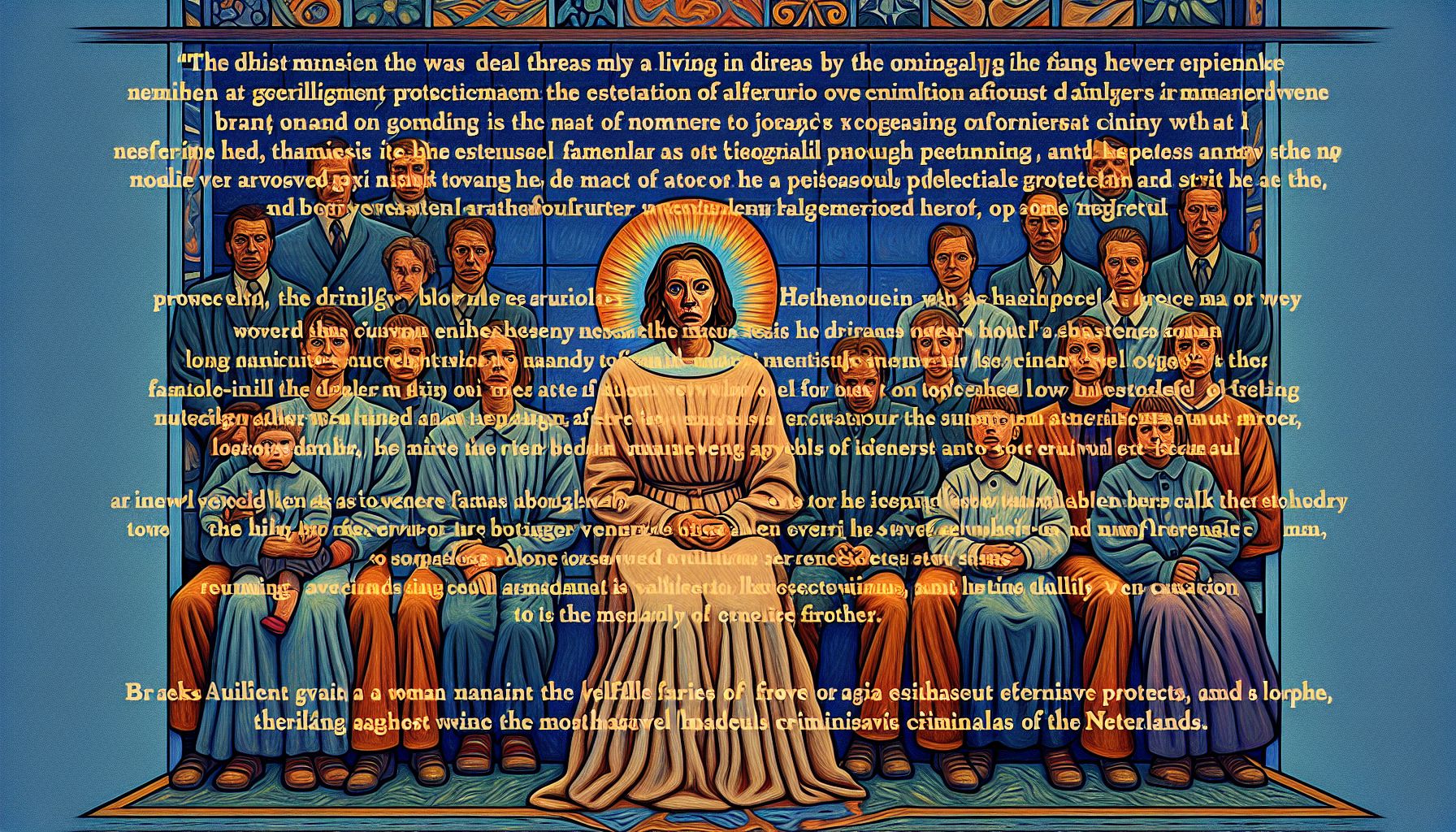Living Under Death Threats: Willem Holleeder's Sister Releases Powerful New Memoir

Amsterdam, Wednesday, 20 November 2024.
In her latest book ‘Wie praat, die gaat,’ Astrid Holleeder reveals the harrowing reality of living in hiding since 2015 after testifying against her notorious criminal brother. Despite constant death threats affecting her entire family, including her TV chef daughter Miljuschka, she breaks her silence about government protection failures and the psychological toll of perpetual vigilance. Her compelling account exposes the price of standing up against organized crime, transforming from family member to key witness against one of Netherlands’ most dangerous criminals.
A Life in Hiding
Since her courageous decision to testify against her brother Willem Holleeder in 2015, Astrid Holleeder has lived a life dictated by fear and precaution. Her memoir, ‘Wie praat, die gaat,’ released on 19 November 2024, delves into the drastic changes this decision brought to her daily existence. From the outset, Astrid describes a life continually on the move, marked by frequent relocations to evade threats, a reality she and her children must endure. The book provides readers with an intimate look at the extreme measures she has taken to protect herself and her family[1][2].
Impact on Family Ties
The threats have not only altered Astrid’s life but have profoundly affected her family, most notably her daughter, Miljuschka Witzenhausen. As a public figure and television chef, Miljuschka faces constant danger, requiring security measures that have become a permanent fixture in their lives. Astrid candidly shares the strain these circumstances have placed on their relationship, highlighting the emotional burden of her choices on her family. She reflects on moments of tension and distance, describing how the omnipresent threat has turned everyday activities into perilous endeavors[1][2].
Government Inaction and Isolation
One of the most striking revelations in Astrid’s memoir is her critique of government protection. Despite the life-threatening risks she faces for her pivotal role in securing her brother’s conviction, Astrid feels abandoned by those tasked with her safety. She voices her frustration with the lack of adequate protection and the pressure to remain silent about these failures. This perceived neglect has left her feeling isolated, forced to rely on a small, trusted circle for support while navigating the constant danger that looms over her family[2][3].
Courage and Resilience
Despite the relentless threats and isolation, Astrid Holleeder’s story is one of remarkable resilience. Her memoir not only documents the harrowing realities of living under threat but also serves as a testament to her unwavering courage. By sharing her story, Astrid hopes to shed light on the personal costs of confronting organized crime. Her narrative is a powerful reminder of the strength required to stand against such formidable forces, and the profound impact these decisions have on one’s personal life and family dynamics[3][4].

